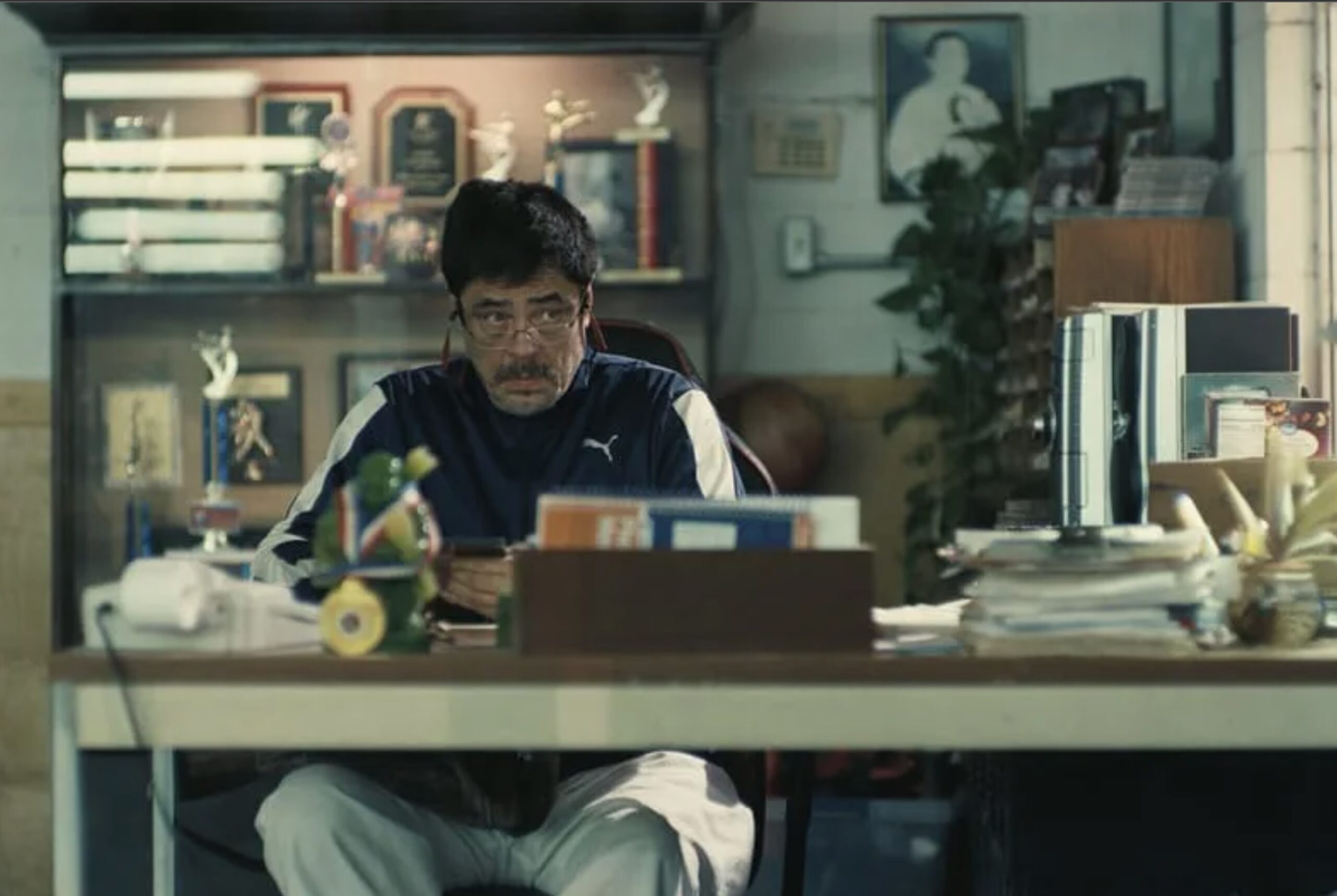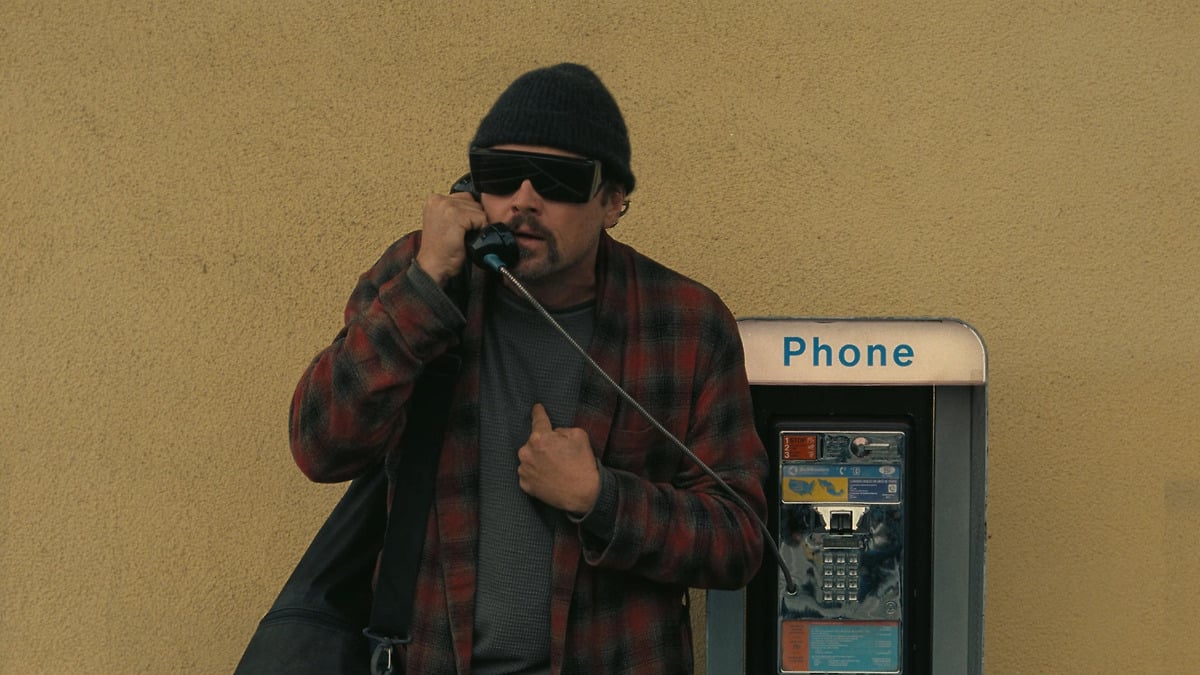He owns a mobile home he drives from place to place, crashing where he can for as long as he can, depending on the language in the local zoning ordinances. He works remote contract data entry jobs on a laptop, always connected to free public WiFi, and accepts all payments under the table via money transfer apps. He doesn’t pay for insurance but manages to treat his chronic illness with one-time visits to free urgent care centers and off-label meds sourced overseas. He has no address, no bank account, no tax filing history. Most of the time, the government cannot find him, but it knows who he is. He knows who he is, too, most of the time. But every once in a while, after days of sending emails and receiving none in response or standing with his hands cupped under the faucet in the bathroom at the rest stop, waiting in vain for the automatic sensor to confirm they exist, he starts to wonder.
Thomas Pynchon’s 1990 novel Vineland, his first after the 1974 National Book Award-winning Gravity’s Rainbow, is one of many Pynchon novels dramatizing and celebrating life on the fringes of society. Paul Thomas Anderson’s latest feature, One Battle After Another, in theaters now, reimagines the novel as a big-budget studio blockbuster starring Leonardo DiCaprio. Although his name and much of his biography have been changed for the movie, DiCaprio’s character is based on the novel’s Zoyd Wheeler, a onetime surf band sideman and hippie revolutionary on the run from Brock Vond, the federal prosecutor for whom Frenesi Gates, the mother of Zoyd’s child, left him years ago. In the book and in the movie, this chase and its backstory bring together a whole host of outsiders, outcasts, and outlaws fighting to survive in the face of a new world order bent on hanging them out to dry for the love of individual gain and greed. The tension between this extra social stratum and the reactionary center that refuses to recognize or provide for it is not only the great theme of Pynchon’s work but the flaw in the design of the American experiment, an experiment the current political leadership has accelerated to the verge of failure.
The Zoyd-Brock-Frenesi triangle resembles one that Pynchon describes in multiple other novels, most notably Inherent Vice and The Crying of Lot 49, the latter of whose heroine is improbably but appropriately named “Oedipa.” In each book, a hapless stoner is forced to reckon with his female partner’s past relationship with a powerful scion of the American capitalist state. This man, though unmistakably evil, offers the woman in question comfort, safety, and hope that she’ll never be able to access among her more dissident milieu. Meanwhile, her partner, although he retains the humanity one must always sacrifice in order to participate in the mercenary project of conformist American commerce, is unavoidably plagued by failure, bad luck, and the mental decline that comes with too much self-medication. The stories these triangles set in motion always lead (after much indulgence in their fraught but palpable erotic charge) to the conclusion that life in America must always end at one or the other pole. We must all either cast aside our beliefs and even our capacity for empathy in favor of the protection of a society governed by no law but the law of profit, or drop off the map and take cover in the lowlands with the rest of the freaks and losers, to live out our days forever at risk, but at peace.
In Vineland, a demographic subset of these freaks and losers are known as “thanatoids,” who self-describe as “like dead, but different.” Although almost every character in Vineland is in some measure of mortal danger at some point, “thanatoids” are designated as such due to a particular set of circumstances. They are all near-casualties “of karmic imbalances—unanswered blows, unredeemed suffering, escapes by the guilty—anything that frustrated their daily expeditions on into the interior of Death.” These “karmic imbalances” may ring of new age parapsychology, but in the America of Trump’s second term, they’re everywhere for those with eyes to see. If healthcare is a human right, then every uninsured person is a victim of a karmic imbalance; what else is an untreated illness or injury, or a hospital bill too large to pay, but “unredeemed suffering?” In a way, everyone in contemporary America is a thanatoid, as the beneficiary of an unkept promise: the promise that in our supposedly meritocratic society, education and labor are always rewarded with money, happiness, and mutual care and respect.
American household debt has doubled since 2000, an increase directly correlated with chronic pain, disordered substance use, and suicidality. Drug overdose deaths have risen more than fivefold in the same amount of time. The biggest employment sectors in the rural areas that turn out most faithfully for Trump are education, healthcare, and social services—all sectors currently affected by the Trump administration’s assault on federal funding. Cutting Medicaid could further the unemployment crisis in these areas, as well as leaving more people uninsured. More Americans are also working part-time or contract jobs or settling for other alternative employment arrangements. Remote work continues to become more prevalent as well. The situation of a person who is nominally employed but rarely works, enjoys no benefits, and never goes into an office––or even leaves the house––is emerging as the norm. Although these people are citizens, laborers, and human beings, there is very little indication in public space that they even exist.

One Battle After Another, 2025. Courtesy of Warner Bros. Pictures.
The word “thanatoid” has a Pynchonian timbre, but appears in multiple nineteenth-century English medical reference texts as a term meaning “resembling death.” Critics in major publications typically characterize Pynchon’s writing as farcical, eccentric, or over-the-top, as opposed to the more domestic and familiar worlds of his contemporaries John Cheever and John Updike. The New Yorker review of his latest—and possibly last—book, Shadow Ticket, dismisses much of the novel’s invention as “absurdity for absurdity’s sake, with no discernible aesthetic or intellectual purpose.” This is an easy mistake to make of the author of a novel including, say, a Japanese insurance adjuster investigating a microprocessor manufacturer for taking out a claim against animal damage the day before finding one of its laboratories destroyed by Godzilla. But just as often as he trades in buffoonery, Pynchon traffics in the little-known but verified, realities that sound impossible until they’re revealed, in his framings, as business as usual. Critics and readers who dismiss Pynchon’s writing as contrary to reality might ask themselves how they came to their own understandings of what reality is supposed to look like.
Vineland’s 24fps, or “twenty-four frames per second,” a radical film collective whose manifesto boasts “We will be architects of a just Hell for the fascist pig. Death to everything that oinks!” has a real-life analogue in California Newsreel, a Leftist organization founded in 1968 to produce educational films for the anti-apartheid movement. The Campaign Against Marijuana Planting, or CAMP, engineering crop destruction across the area surrounding the town of Vineland, is a real California Justice Department task force established in 1983 and, as of now, still active. The “Vibrating Palm” technique, a specialty of Frenesi’s old Comrade DL Chastain, which causes its victim to die one year after the blow is struck, is an actual “touch of death” technique in Chinese martial arts. Even a “Dr. Spock” famous for applying the concepts of psychoanalysis to pediatrics was a real person.
One reason Vineland is such an uncanny read is that its plot seems at once entirely and not quite believable. How has a lawyer, even a federal prosecutor, been authorized to command a military “strike force” to physically chase down an old hippie who just happens to have a child with his ex-girlfriend? The whole situation resonates spiritually, but logistically it strains credulity––at first. Toward the end of Vineland, Brock is revealed to be on temporary duty under REX 84, or Readiness Exercise 1984 Bravo, a military simulation assessing the government’s ability to target and arrest US citizens under suspicion. In real life, REX 84 was a scenario designed as a stress test for the National Security Decision Directive, a classified contingency plan drafted by the Reagan administration to allow the federal government to pursue and detain “enemy” migrants in the event of US military engagement in Central America.
Reagan’s plan focused on Central America due to the administration’s oversight of the CIA-led coup against the socialist Sandinista party in Nicaragua, but its model was “Project Garden Plot,” the Nixon administration’s plan to use the same state of contingency as justification for policing opponents of the Vietnam War. In today’s political climate, such a scenario is not just plausible—it’s happening. Residents are being deported despite their immigration status, there is a proposal under review to designate all transgender people as violent extremists, and the President is vowing to identify and neutralize anyone who speaks ill of a recently assassinated right-wing pundit. For many of us on the Left, when it comes to the government kicking down our doors to transport us to a black site for interrogation and internment, the question is not if, but when?
One Battle After Another begins not on any Leftist’s doorstep, but at the US-Mexico border. Here, DiCaprio’s Wheeler, renamed Ghetto Pat Calhoun, or sometimes Rocketman, has gathered with the French 75, a faction of mostly Black armed radicals, including his partner, here named Perfidia Beverly Hills and played by Teyana Taylor, to liberate a group of captive immigrants in a declaration of insurrectionary warfare. Given the bald xenophobia behind REX 84 and thus the entire plot of Vineland, the choice is appropriate; given the movie’s project of updating the novel’s Reagan-era politics for the America of Trump’s second term, any other choice would have amounted to an abdication of duty. The film departs from its source material in various unexpected ways. Still, the primary virtue of Anderson’s restaging is that it makes explicit what is only implicit in Pynchon’s novel: The US government’s actions against the Left constitute an effort auxiliary to its broader project of achieving and preserving racial purity at any human cost.
The love triangle of Vineland plays out in the movie between Pat, Perfidia, and Sean Penn’s Captain—and then Colonel—Steven J. Lockjaw. In novel and film, sex is the confounding variable in an equation that reduces all relationships to hierarchical arrangements: Is sex an expression of freedom, or a subjugating ritual? Achieving the former via the latter is almost the definition of kink, but to do so is harder––for both parties––when the subjugating hierarchy is literally, as Lockjaw calls it, “the embrace of the federal government.” Perfidia discovers early in the film what Lockjaw is ruined by: The failure to realize that robbing another of power by force forecloses freedom, and therefore its enjoyment, for both.
The government’s campaigns to foreclose freedom result in one battle after another. The French 75 succumb one by one to hostile interrogation and surveillance tactics. Lockjaw’s pursuit of Bob and Willa Ferguson, the identities assumed by Ghetto Pat and the child Perfidia has left him to raise alone (played by Chase Infiniti), disrupts a school dance, lays siege to a nunnery, and leaves dozens for dead. Benicio Del Toro, as Sensei Sergio St. Carlos, leads a neighborhood of immigrants through a series of routinized homegrown resistance networks far more sophisticated than any with which DiCaprio’s character is familiar. Besides being the most ambitious and mature Anderson has helmed to date, these latter sequences are significant because they represent the actual policy that enables all of the military action in the movie. When his direct report delivers Bob’s and Willa’s names and location, Lockjaw orders him to “Make me a reason to deploy in that town.” No one is ever asked to make up a reason to round up immigrants.

One Battle After Another, 2025. Courtesy of Warner Bros. Pictures.
The clashes between law enforcement and organized immigrants in One Battle After Another are literally explosive. In one memorable scene, Lockjaw calls in an agent provocateur in a Van Halen T-shirt to launch a Molotov cocktail at a phalanx of his own officers. The gunfire is deafening in the surround-sound mix, and the agents in full tactical gear all look twice the size of the civilians. Conservative critics insist that these representations are exaggerated and sensationalized, but the agency in question will see its funding boosted fivefold after this year. However believable these scenes feel today, they will feel uncomfortably tame a year from now. The justification provided for this increase is a need to collect data on immigrant voters in the effort to prevent election fraud, but, just like under Nixon and Reagan, it will inevitably bring about further nativist terror. The bill allocating this massive increase in funding is also, of course, the same bill that will eliminate public programs supporting those in precarious housing and employment situations and increase income for the profiteers of these inequities.
The real reason Lockjaw is looking for Willa is his application to join an elite secret society called The Christmas Adventurers’ Club, whose members are prohibited from any lifetime participation in interracial relationships. The Christmas Adventurers do not appear in Vineland, but their presence in the movie serves as an almost parodic nod to the white supremacists of Pynchon’s oeuvre: scatologically creepy but compulsively polite, delivering grim ordinances from the hidden tunnels about which they stalk like peeping toms. As nakedly as he lusts for Black women, Lockjaw cannot resist the glory conferred by the bonafides of white society, such as the “Bedford Forrest1 Medal of Honor” he is awarded for his operations against the French 75. When the Christmas Adventurers find out about his relationship (and possibly his child) with Perfidia, they hire a hitman to “make it clean,” because they “should all be able to eat off the floor.” What Lockjaw never counts on is that just as the government can manipulate its policies to allow for personal crusades against leftists who don’t believe in its causes, it can do the same to justify eliminating any of
its own who fail to satisfy even its most rigid and intolerant expectations.
At the end of Vineland, Vond is escorted across the Klamath River to the Yurok land of the dead, to suffer the thanatoid fate in its most appropriate setting. Lockjaw is not so lucky; he takes a round of buckshot to the face, and then somehow survives into an uncanny sequence in which he is surgically reconstructed and then interrogated, gassed, and incinerated by the Christmas Adventurers. The word “thanatoid” predictably did not make it into this hundred-plus-million-dollar vehicle of Warner Bros. Studios, but Lockjaw’s epilogue sufficiently demonstrates the notion that one’s spirit is never fully extinguished until one’s business on Earth is done. The karmic imbalance that undoes Lockjaw is his inability to forget Perfidia, and thereby sever his connection to the wide, complicated world he has spent his career thinning down to an austere homogeneity. Having made it his life’s objective to shrink the world enough to stifle his own contradictory drives, he exits the film a trivial expense of a world too small even for him.
He retired years ago, but he still has access to an office on the top floor of the building. He comes in every once in a while for board meetings, to cast a decisive vote on matters affecting the lives of millions of people he’ll never meet. He pays no attention to the day-to-day. He has long since traded authority for power. To many at the organization, he is simply a face on a wall, a name on the side of the building, even an unaccountable influence who speaks only in directives from above. Whenever someone calls asking to speak with him, he is unavailable. He is on St. Bart’s, in Jackson Hole, off the Amalfi Coast. He is untraceable enough that when he does visit the building, no one even knows he’s there. He sits in his office with the shades drawn, no one permitted to enter save for his doctor, the only person he still trusts. Updates on his terminal condition are for his ears only; when the doctor departs, he digests them in solitude. He has stolen the world from the people who made it and rebuilt it in his image. Now, at the end of his life, his work complete, he awaits his judgment.


